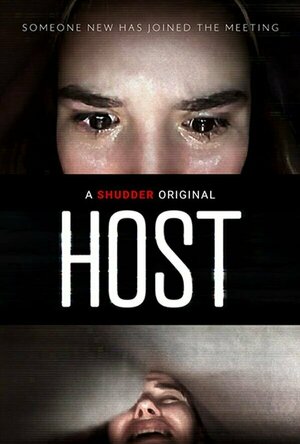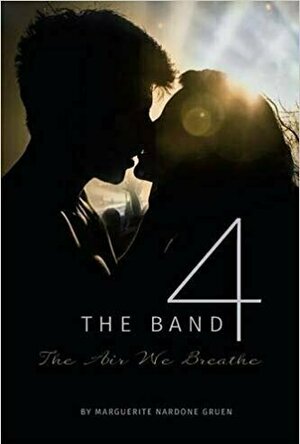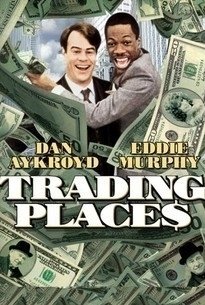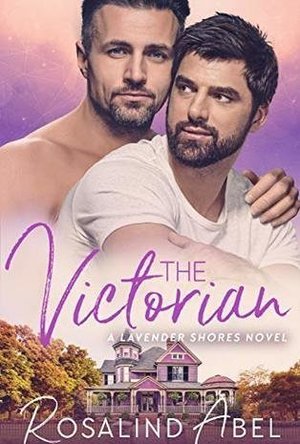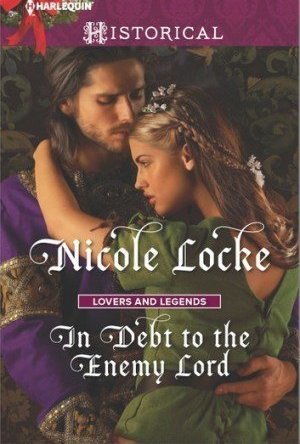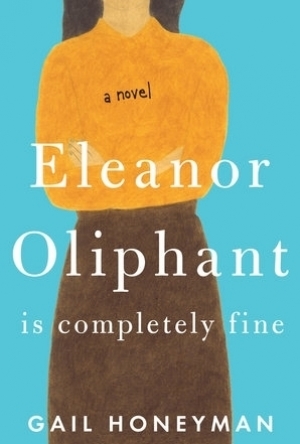Search
Search results

Buy Me a Pie! Classic - Grocery Shopping List
Productivity and Lifestyle
App
How many times have you returned from a store only to realize you've forgotten something? This...

Cat Simulator 2015
Games
App
Cat Simulator Online The most beautiful and realistic Cat Simulator available on the IOS! Play as a...
Lee (2222 KP) rated Host (2020) in Movies
Sep 2, 2020
The concept of an entire movie playing out on a computer screen isn’t exactly a new one. A great example of this style of filmmaking was 2018 movie Searching, which I am a huge fan of. Back in 2014, Unfriended took the online chat room and managed to turn it into a horror movie, proving what could be achieved within such basic confines. And now, new Shudder horror Host continues in that theme, presenting us with a Zoom chat that goes horribly wrong.
Where Host differs from Unfriended is in its timely release. Filmed over a 12 week period during lockdown, and taking place entirely within the timeframe of a 60 minute Zoom call, Host portrays what we’ve all experienced in recent months – the socially distanced meetup with friends or colleagues online. And then it throws in some supernatural jump scares to terrify us into never wanting to participate in one ever again!
Host follows six friends, as they logon for their weekly Zoom catch-up. Only this time, Haley has suggested that they also hold an online séance, and has invited Irish spiritualist Seylan to join in and guide them through the experience. Before Seylan joins the chat though, we get to spend some time with the friends and you can’t help but feel at ease with the familiarity of seeing a group of people chatting together on screen, each in a different location. Even more so if you’re watching all of this play out on a small screen, as I was.
It’s clear from the start though that some of the group aren’t looking to take the séance too seriously, with one of them suggesting that they also play a drinking game. Whenever Seylan says the phrase “astral plane”, they decide they will try and down a drink without her realising what they’re up to. Consequently, it’s not long before one of the group has managed to ‘disrespect the spirits’, and when Seylan gets cut off the chat following connection issues, all manner of strange things begin happening to each of the group.
A number of them are in darkened rooms, so obviously you find yourself straining your eyes, searching for something out of the ordinary in every corner of the screen. There are the usual strange noises, lights flashing, with the occasional rational explanation behind it. And then there are plenty of big scares too – practical, effective effects that really pack a punch and are truly terrifying.
Important to all of this is the believability of our cast. Thankfully, their performances all feel believable, their friendship and conversation natural. I did find Teddy, the only male of the group, to be pretty annoying, but luckily he only appears briefly at the beginning and at the end of the movie.
Host came about after director and co-writer, Rob Savage, made a Zoom prank, which went viral after sharing on Twitter back in April. It’s a fortunate side effect of the pandemic that filmmakers have been forced to explore new and creative ways of making movies. And Host is an excellent, shining example of just how well that can pay off.
Where Host differs from Unfriended is in its timely release. Filmed over a 12 week period during lockdown, and taking place entirely within the timeframe of a 60 minute Zoom call, Host portrays what we’ve all experienced in recent months – the socially distanced meetup with friends or colleagues online. And then it throws in some supernatural jump scares to terrify us into never wanting to participate in one ever again!
Host follows six friends, as they logon for their weekly Zoom catch-up. Only this time, Haley has suggested that they also hold an online séance, and has invited Irish spiritualist Seylan to join in and guide them through the experience. Before Seylan joins the chat though, we get to spend some time with the friends and you can’t help but feel at ease with the familiarity of seeing a group of people chatting together on screen, each in a different location. Even more so if you’re watching all of this play out on a small screen, as I was.
It’s clear from the start though that some of the group aren’t looking to take the séance too seriously, with one of them suggesting that they also play a drinking game. Whenever Seylan says the phrase “astral plane”, they decide they will try and down a drink without her realising what they’re up to. Consequently, it’s not long before one of the group has managed to ‘disrespect the spirits’, and when Seylan gets cut off the chat following connection issues, all manner of strange things begin happening to each of the group.
A number of them are in darkened rooms, so obviously you find yourself straining your eyes, searching for something out of the ordinary in every corner of the screen. There are the usual strange noises, lights flashing, with the occasional rational explanation behind it. And then there are plenty of big scares too – practical, effective effects that really pack a punch and are truly terrifying.
Important to all of this is the believability of our cast. Thankfully, their performances all feel believable, their friendship and conversation natural. I did find Teddy, the only male of the group, to be pretty annoying, but luckily he only appears briefly at the beginning and at the end of the movie.
Host came about after director and co-writer, Rob Savage, made a Zoom prank, which went viral after sharing on Twitter back in April. It’s a fortunate side effect of the pandemic that filmmakers have been forced to explore new and creative ways of making movies. And Host is an excellent, shining example of just how well that can pay off.

Perth offline map with public transport route planner for my journey
Navigation and Travel
App
!! ENJOY OUR 70% LAUNCH DISCOUNT! REGULAR PRICE - 2.99$ !! 100% OFFLINE: beautiful 3D city map,...
Kara Skinner (332 KP) rated The Band 4: The Air We Breathe in Books
Sep 10, 2019
Genre: Contemporary, Inspirational
Page Count: 324 pages (of nauseation)
Average Goodreads Rating: 3/5 stars (why, Goodreads? You’re usually so tough on books)
My Rating: 1.5/ 5 stars
Truthfully, this is actually a great story. Yeah. So great. It’s the perfect backstory for its horror sequel: The Martins Trump Manson on Body Count.
As a romance it fucking sucks.
I don’t even know where to begin. This book is so full of sugary sap that it makes pasta covered in maple and chocolate syrup and marshmallows look appetizing.
original
Still not as sweet as The Air We Breathe
Here’s the thing: I’m not actually a bitter and cynical person. I like sap and fluff. I smile and giggle during romance scenes, I’ve obsessively written cute and romantic fanfiction and my boyfriend and I were arguably the most nauseatingly cute couple to ever walk the halls of John Bapst Memorial High School.
But I gagged reading this book for the amount of love-doveyness.
Marguerite is on holiday in London, recovering from the sudden deaths of her parents which liberated her from 27 years of being suffocated and controlled by them. While there, she has a random chance encounter with Chase Martin, a depressed rock star exhausted from touring with his band. Chase and Marguerite are drawn together by a strange unknown force. They don’t know why they have such a strong connection to each other, but they do know that life without the other would not be living at all.
I actually really liked the beginning and thought that it would shape up to be an interesting and sweet romance. We see them before they meet in the coffee shop, miserable and depressed, and then while sipping her drink and reading her book, Marguerite feels Chase’s anxiety. So she buys him a decaf drink and gives it to him, saying she could feel his anxiety from across the shop. That’s great.
The two of them realize they’re drawn together and can find each other happiness and Marguerite ends up spending the night at Chase’s house just so they can find comfort in having another human being near them. That’s great, too.
The beginning is by far my favorite part because it has promise for a good story and has more vivid scenes than any other part of the book.
But then it moves too quickly from there.
From that moment on, the two of them are so deep in love they make Romeo and Juliet look reserved and cautious. They are constantly “blown away” by each other and moved to tears every minute by each other. They “get a kick out of” every little joke they make to each other, and they start living together immediately after they meet. After a week (that’s right, a flipping week), Chase proposes to her.
And if I had a pin for every time one of those quoted phrases appeared in this novel, I could pulverize a voodoo doll. The repeated phrases and excessive emotion of the characters is definitely the worst part.
I’m still not that aggravated with this book, yet. Yeah, the insta love irks me, but I figure there will be a great plot with lots of trouble between the two of them after they marry. After all, they barely know each other and they need to figure out what this psychic connection means. Maybe they’re the incarnated souls of Hawkgirl and Hawkman and they’re about to get killed by an immortal psychopath (did I mention I’m a huge nerd?).
Nope. The two of them agree on everything, right down to how to decorate the house and the new rule that shoes are off upon entering. And things continue to be hunky dory for practically forever. All of Chase’s friends, and their girlfriends, love Marguerite and nobody questions their whirlwind romance. Yeah, because a severely depressed person getting engaged after a week of dating isn’t a cry for help or anything.
And there is so much to dislike about Chase’s and Marguerite’s decisions. Marguerite is forced to quit her job so she can move to London to be with Chase.
Never mind that she liked her job in Pennsylvania and didn’t express any wish to be a housewife. Never mind that Chase was getting tired of touring and thinking about quitting the band anyway. It’s her life that gets turned upside down.
Also, so much for her newfound freedom following her parents’ deaths! Now she’s shadowed by a bodyguard wherever she goes, needs to sneak into the backs of restaurant when she wants to eat out, and can’t even walk to the store for fear of being accosted by her husbands’ fans.
Yes, Chase’s life gets changed too. He now has a wife that cooks meals for him, cleans for him, furnishes and decorates his house for him, and hands him a cold towel when he walks off stage. He made some real damn sacrifices when he married Marguerite.
bitch_please_by_teslapunk-d32znko
But life goes on. With a lot of summary and over thirty years, it goes on.
Aside from dialogues and scenes peppered here and there, the book is mostly sweet and sappy summary of their lives. Dark things happen now and then but they’re glossed over and smothered in fluff.
If this storyline was done by a competent writer, this actually could have been an entertaining series about the Martin family. There is actually plenty of material between the psychic connection, Marguerite’s tragic background, a miscarriage, a huge celebrity drugging conspiracy, two sets of twins, a near death experience, and a baby on the doorstep.
But somehow it becomes boring and plotless when it’s all crammed into one book that seems to drag on forever. During all of this my main concern, the psychic connection, was never explained. It’s just a gift from God. One that turns their “perfect” (as in creepily well behaved and mature) children into kids from The Shining. Because they also have a psychic connection. They can “feel” each other and their parents. Oh, and talk to their dead sister, apparently, when their dead sister wants to tell them about babies being left on their doorstep.
“This is Baby Sarah,” Matt said.
“Baby Sarah?” Marguerite asked.
(Both sets of twins) said “Yes. We knew she was coming.”
Chase asked, “How did you know?”
“Baby Margaret told us,” Mark said.
Also, when Chase and Marguerite choose Sarah’s full name, all four children, in a different room, wake up from a dead sleep, sit up in unison, and announce that the baby is named.
May I present the newest additions to the Martin family?
If you want to read a rockstar romance, I recommend Love’s Rhythm by Lexxie Couper, which isn’t perfectly crafted, but leagues beyond The Band 4: The Air We Breathe.
Page Count: 324 pages (of nauseation)
Average Goodreads Rating: 3/5 stars (why, Goodreads? You’re usually so tough on books)
My Rating: 1.5/ 5 stars
Truthfully, this is actually a great story. Yeah. So great. It’s the perfect backstory for its horror sequel: The Martins Trump Manson on Body Count.
As a romance it fucking sucks.
I don’t even know where to begin. This book is so full of sugary sap that it makes pasta covered in maple and chocolate syrup and marshmallows look appetizing.
original
Still not as sweet as The Air We Breathe
Here’s the thing: I’m not actually a bitter and cynical person. I like sap and fluff. I smile and giggle during romance scenes, I’ve obsessively written cute and romantic fanfiction and my boyfriend and I were arguably the most nauseatingly cute couple to ever walk the halls of John Bapst Memorial High School.
But I gagged reading this book for the amount of love-doveyness.
Marguerite is on holiday in London, recovering from the sudden deaths of her parents which liberated her from 27 years of being suffocated and controlled by them. While there, she has a random chance encounter with Chase Martin, a depressed rock star exhausted from touring with his band. Chase and Marguerite are drawn together by a strange unknown force. They don’t know why they have such a strong connection to each other, but they do know that life without the other would not be living at all.
I actually really liked the beginning and thought that it would shape up to be an interesting and sweet romance. We see them before they meet in the coffee shop, miserable and depressed, and then while sipping her drink and reading her book, Marguerite feels Chase’s anxiety. So she buys him a decaf drink and gives it to him, saying she could feel his anxiety from across the shop. That’s great.
The two of them realize they’re drawn together and can find each other happiness and Marguerite ends up spending the night at Chase’s house just so they can find comfort in having another human being near them. That’s great, too.
The beginning is by far my favorite part because it has promise for a good story and has more vivid scenes than any other part of the book.
But then it moves too quickly from there.
From that moment on, the two of them are so deep in love they make Romeo and Juliet look reserved and cautious. They are constantly “blown away” by each other and moved to tears every minute by each other. They “get a kick out of” every little joke they make to each other, and they start living together immediately after they meet. After a week (that’s right, a flipping week), Chase proposes to her.
And if I had a pin for every time one of those quoted phrases appeared in this novel, I could pulverize a voodoo doll. The repeated phrases and excessive emotion of the characters is definitely the worst part.
I’m still not that aggravated with this book, yet. Yeah, the insta love irks me, but I figure there will be a great plot with lots of trouble between the two of them after they marry. After all, they barely know each other and they need to figure out what this psychic connection means. Maybe they’re the incarnated souls of Hawkgirl and Hawkman and they’re about to get killed by an immortal psychopath (did I mention I’m a huge nerd?).
Nope. The two of them agree on everything, right down to how to decorate the house and the new rule that shoes are off upon entering. And things continue to be hunky dory for practically forever. All of Chase’s friends, and their girlfriends, love Marguerite and nobody questions their whirlwind romance. Yeah, because a severely depressed person getting engaged after a week of dating isn’t a cry for help or anything.
And there is so much to dislike about Chase’s and Marguerite’s decisions. Marguerite is forced to quit her job so she can move to London to be with Chase.
Never mind that she liked her job in Pennsylvania and didn’t express any wish to be a housewife. Never mind that Chase was getting tired of touring and thinking about quitting the band anyway. It’s her life that gets turned upside down.
Also, so much for her newfound freedom following her parents’ deaths! Now she’s shadowed by a bodyguard wherever she goes, needs to sneak into the backs of restaurant when she wants to eat out, and can’t even walk to the store for fear of being accosted by her husbands’ fans.
Yes, Chase’s life gets changed too. He now has a wife that cooks meals for him, cleans for him, furnishes and decorates his house for him, and hands him a cold towel when he walks off stage. He made some real damn sacrifices when he married Marguerite.
bitch_please_by_teslapunk-d32znko
But life goes on. With a lot of summary and over thirty years, it goes on.
Aside from dialogues and scenes peppered here and there, the book is mostly sweet and sappy summary of their lives. Dark things happen now and then but they’re glossed over and smothered in fluff.
If this storyline was done by a competent writer, this actually could have been an entertaining series about the Martin family. There is actually plenty of material between the psychic connection, Marguerite’s tragic background, a miscarriage, a huge celebrity drugging conspiracy, two sets of twins, a near death experience, and a baby on the doorstep.
But somehow it becomes boring and plotless when it’s all crammed into one book that seems to drag on forever. During all of this my main concern, the psychic connection, was never explained. It’s just a gift from God. One that turns their “perfect” (as in creepily well behaved and mature) children into kids from The Shining. Because they also have a psychic connection. They can “feel” each other and their parents. Oh, and talk to their dead sister, apparently, when their dead sister wants to tell them about babies being left on their doorstep.
“This is Baby Sarah,” Matt said.
“Baby Sarah?” Marguerite asked.
(Both sets of twins) said “Yes. We knew she was coming.”
Chase asked, “How did you know?”
“Baby Margaret told us,” Mark said.
Also, when Chase and Marguerite choose Sarah’s full name, all four children, in a different room, wake up from a dead sleep, sit up in unison, and announce that the baby is named.
May I present the newest additions to the Martin family?
If you want to read a rockstar romance, I recommend Love’s Rhythm by Lexxie Couper, which isn’t perfectly crafted, but leagues beyond The Band 4: The Air We Breathe.
Haley Mathiot (9 KP) rated Soul Catcher (The Outsider #1) in Books
Apr 27, 2018
Soul Catcher by Leigh Bridger
Genre: Sci-fi, Romance
ISBN: 9780982175682
Rating: 4
Livia hasn't had a perfect life—in fact she hasn't even had a good life. It all started when her father died when she was young, then got worse when her mother and baby brother died in a fire that she may or may not have started. She also starts painting pictures of evil horrible demons in her sleep, and is forced to burn the pictures and ban them… but one demon escapes, and comes for her.
She finds out that he had been pursuing her in every life—she's been reincarnated? what?—and has killed her every time for the past 200+ years. She also finds out that she has a soul mate, (who jumped into the body that the demon had used to hurt her, and now she can't look at him without getting sick) but has hidden herself from him in almost every life, subconsciously, because of something that happened in the past. She and Ian set off to find answers and to kill the pig-faced demon… for good this time. But this time ends up being the most dangerous life she's ever lived.
Soul Catcher was an addicting read. I would have read it in one sitting if I'd been allowed. It actually stuck with me all night and I'm pretty sure I dreamed about it.
I liked the philosophy of the world that Livia lived in. There were soul jumpers, like Ian and Dante, who could jump into any body he needed to be in at the time. There were soul catchers like her, who could banish dark spirits and talk to the light ones. The plot itself was very complex, and every chapter added something new to the story. One thing that made Soul Catcher stand out was how Livia and Ian's love grew. It wasn't immediate you're-my-soul-mate-you're-perfect-for-me kind of love. It was a lot more real than that. Livia starts by trying to avoid him at all costs, but ends up having to go on a trip with him to find out about their pasts. You could say they "bonded," or you could say that Ian finally got to her—even while he was in the body she hated passionately—either way, their love was real enough to be believable.
I really liked Livia, even though she had her downfalls and her insecurities. She was definitely the bad-ass heroine we know and love: slightly sarcastic, very obnoxious, stubborn as an ox, and head over heels in love but unwilling to admit it because she sees it as a weakness. Ian was a great character: he'd have to be to put up with Livia. He'd do anything for her, is dying for her to love him, thinks she is the most beautiful girl in the world—and even bends so low as to trick her into kissing him (she didn't appreciate that.). But he's all light-hearted, fun to be around, with a sexy Irish accent.
I really liked the ending. The whole story had good humor and good comic relief, but the ending was sweet, cute, and funny. It pulled everything together nicely, and left you with a smirk on your face. I say take it to the beach with an umbrella and lemonade. Or whatever other drink you like best.
Content/recommendation: some sex and sexual references, heavy language, ages 18+
~ Haleyknitz
Genre: Sci-fi, Romance
ISBN: 9780982175682
Rating: 4
Livia hasn't had a perfect life—in fact she hasn't even had a good life. It all started when her father died when she was young, then got worse when her mother and baby brother died in a fire that she may or may not have started. She also starts painting pictures of evil horrible demons in her sleep, and is forced to burn the pictures and ban them… but one demon escapes, and comes for her.
She finds out that he had been pursuing her in every life—she's been reincarnated? what?—and has killed her every time for the past 200+ years. She also finds out that she has a soul mate, (who jumped into the body that the demon had used to hurt her, and now she can't look at him without getting sick) but has hidden herself from him in almost every life, subconsciously, because of something that happened in the past. She and Ian set off to find answers and to kill the pig-faced demon… for good this time. But this time ends up being the most dangerous life she's ever lived.
Soul Catcher was an addicting read. I would have read it in one sitting if I'd been allowed. It actually stuck with me all night and I'm pretty sure I dreamed about it.
I liked the philosophy of the world that Livia lived in. There were soul jumpers, like Ian and Dante, who could jump into any body he needed to be in at the time. There were soul catchers like her, who could banish dark spirits and talk to the light ones. The plot itself was very complex, and every chapter added something new to the story. One thing that made Soul Catcher stand out was how Livia and Ian's love grew. It wasn't immediate you're-my-soul-mate-you're-perfect-for-me kind of love. It was a lot more real than that. Livia starts by trying to avoid him at all costs, but ends up having to go on a trip with him to find out about their pasts. You could say they "bonded," or you could say that Ian finally got to her—even while he was in the body she hated passionately—either way, their love was real enough to be believable.
I really liked Livia, even though she had her downfalls and her insecurities. She was definitely the bad-ass heroine we know and love: slightly sarcastic, very obnoxious, stubborn as an ox, and head over heels in love but unwilling to admit it because she sees it as a weakness. Ian was a great character: he'd have to be to put up with Livia. He'd do anything for her, is dying for her to love him, thinks she is the most beautiful girl in the world—and even bends so low as to trick her into kissing him (she didn't appreciate that.). But he's all light-hearted, fun to be around, with a sexy Irish accent.
I really liked the ending. The whole story had good humor and good comic relief, but the ending was sweet, cute, and funny. It pulled everything together nicely, and left you with a smirk on your face. I say take it to the beach with an umbrella and lemonade. Or whatever other drink you like best.
Content/recommendation: some sex and sexual references, heavy language, ages 18+
~ Haleyknitz
Phillip McSween (751 KP) rated Trading Places (1983) in Movies
Apr 7, 2018
Great 80's Comedy
The Duke Brothers, kings of the stock exchange, wager a bet on whether or not a poor man with no experience can succeed in running their brokerage firm. It's a solid comedy that relies on human nature to help tell its story.
Acting: 10
A mixture of familiar faces and a few fresh ones, performances are stellar from top to bottom. It's what you expect when true professionals come together to put on a show. Eddie Murphy's comedic timing is on point as always, playing the role of homeless man Billy Ray Valentine. Just listening to him tell his story in prison about the Quart of Blood Technique had me in stitches. He has a way of being funny in a nonchalant way, reminding me of some of my closest friends.
Denholm Elliott won my heart as the lovable butler Coleman. He's kindhearted, but can be hilariously cruel at the same time. A lot of his laughs came from watching his subtle actions (rolling his eyes after a phone call, sneaking a drink during a party, etc.).
Dan Aykroyd won me over as well in his role as rich snob Louis Winthorpe III. I hated his guts at first but ultimately came to sympathize with his character which was the whole idea. He wore the role of proud rich kid well, but excelled when it came time for him to get crazy.
Beginning: 7
Characters: 7
Cinematography/Visuals: 8
The film opens with a multitude of shots that captures the heart of Philadelphia so well. I've only visited the city once and seeing those opening shots made me want to go back. Other very memorable scenes include the party at Valentine's home (absolute bedlam) and the calamity that is the trading room floor. Just seeing all those bodies pressing in on each other is enough to make you claustrophobic.
Favorite Still Shot: Valentine laying on the ground with almost a dozen cops pointing their guns just inches from his face. That one shot has been a feature in so many film montages over the years and deservedly so. That smile Murphy delivers saying, "I give up" is timeless.
Conflict: 8
Genre: 6
Memorability: 9
Trading Places still holds up all these years later as a classic comedy. It's hilarious but it also gives you pause for thought as well about the class and race roles in society. Sure it can be absolutely farfetched at times, but it's sole purpose is seemingly not just to entertain, but to raise awareness as well. It's been a few days since I've seen the film yet it still sticks out in my head amongst others.
Pace: 8
Plot: 8
As the plot unfolded, I thought it was absolutely ridiculous...Until I started thinking about today's political landscape and considered, "Hmmm, this is exactly the kind of experiment I could see a rich person with a lot of time on their hands concocting." It isn't all the way believable, but I tend to make exceptions for action films and comedies.
Resolution: 10
Overall: 81
I like Trading Places way more than I expected to. Director John Landis does an excellent job of walking the line between funny and thought-provoking, sometimes even daring to mix the two. Very solid film.
Acting: 10
A mixture of familiar faces and a few fresh ones, performances are stellar from top to bottom. It's what you expect when true professionals come together to put on a show. Eddie Murphy's comedic timing is on point as always, playing the role of homeless man Billy Ray Valentine. Just listening to him tell his story in prison about the Quart of Blood Technique had me in stitches. He has a way of being funny in a nonchalant way, reminding me of some of my closest friends.
Denholm Elliott won my heart as the lovable butler Coleman. He's kindhearted, but can be hilariously cruel at the same time. A lot of his laughs came from watching his subtle actions (rolling his eyes after a phone call, sneaking a drink during a party, etc.).
Dan Aykroyd won me over as well in his role as rich snob Louis Winthorpe III. I hated his guts at first but ultimately came to sympathize with his character which was the whole idea. He wore the role of proud rich kid well, but excelled when it came time for him to get crazy.
Beginning: 7
Characters: 7
Cinematography/Visuals: 8
The film opens with a multitude of shots that captures the heart of Philadelphia so well. I've only visited the city once and seeing those opening shots made me want to go back. Other very memorable scenes include the party at Valentine's home (absolute bedlam) and the calamity that is the trading room floor. Just seeing all those bodies pressing in on each other is enough to make you claustrophobic.
Favorite Still Shot: Valentine laying on the ground with almost a dozen cops pointing their guns just inches from his face. That one shot has been a feature in so many film montages over the years and deservedly so. That smile Murphy delivers saying, "I give up" is timeless.
Conflict: 8
Genre: 6
Memorability: 9
Trading Places still holds up all these years later as a classic comedy. It's hilarious but it also gives you pause for thought as well about the class and race roles in society. Sure it can be absolutely farfetched at times, but it's sole purpose is seemingly not just to entertain, but to raise awareness as well. It's been a few days since I've seen the film yet it still sticks out in my head amongst others.
Pace: 8
Plot: 8
As the plot unfolded, I thought it was absolutely ridiculous...Until I started thinking about today's political landscape and considered, "Hmmm, this is exactly the kind of experiment I could see a rich person with a lot of time on their hands concocting." It isn't all the way believable, but I tend to make exceptions for action films and comedies.
Resolution: 10
Overall: 81
I like Trading Places way more than I expected to. Director John Landis does an excellent job of walking the line between funny and thought-provoking, sometimes even daring to mix the two. Very solid film.
Debbiereadsbook (1633 KP) rated The Victorian (Lavender Shores #9) in Books
Feb 4, 2019
totally surprised by this one! Loved it!
This is book 9 in the Lavender Shores series and I *think* Seth pops up in every one! You don't need to have read the other books, before this one, but I think you should. They are all 4 and 5 star reads from me, bar one.
We met Seth right at the beginning of book one, The Palisade. I thought it was chapter one, but it is in chapter two he makes his first appearance. I am SOOOOOOOOOOOOO glad he got his own story, he deserved it!
Seth runs the B and B and Charley has a restaurant in town. They have history, a deep sated hatred of each other that Seth knows not from whence it came. Charley does though. When they are thrown together for a food and drink festival, sparks fly. But sparks is far too tame a word for what Seth and Charley begin to feel for each other. Each man has his demons, and those demons need banishing before they can admit who they really want.
There is an . . . incident . . . at the beginning, though, before all of this and I'm not saying what. It's kinda thrown at them by someone else and I think it was a bit unfair. It does, however, give Seth and Charley a taste of what could be between them, should they want. And they DO want, that much is obvious, even with the tempers between them!
So much passion between these two, it jumps off the page right from that incident (but again, far too tame a word for what happens!) Not just the anger between, or rather from Charley, but the connection that keeps pulling them together. And when Seth sees Charley, I mean really SEES why Charley is so angry all the time? Oh! Seth is just . . ..oh!
I cried a lot for these two. I wasn't expecting any of this, because there was no indication that this was coming! Or at least, I never picked up on it! There was not a single point along the way, in any of the other 8 books, that I can pick up and say ""oh yeah, that story is gonna be good!" And I was going to comment that this was a negative, but actually, I'm GLAD I did not see this one coming, I really am. I'm GLAD I did not see Seth's story unfolding because it might have taken away the surprise out of this story and it's the SURPRISE part that MAKES this book!
So many surprises, and I'm not pointing them out cos of spoilers, but I did NOT see any of them coming at me, and I am so freaking glad I didn't!
There is another story planned, I believe, about the instigator of that *Incident * I don't want to be too hard on him, because he really did think he was helping, but I truly hope he is sorry for the way he went about it, rather than what he did.
This book carries some darker moments, both for Seth and Charley and some readers may find it difficult. I did, because they both have difficult pasts.
But so bloody good! I read it in one sitting, after 6 days straight at work, two back to back 14 hour shifts, starting it at 10pm and did not stop til I ran out of book! And it ain't a short one either, some 330 pages!
So, 5 bloody amazing stars!
**same worded review will appear elsewhere**
We met Seth right at the beginning of book one, The Palisade. I thought it was chapter one, but it is in chapter two he makes his first appearance. I am SOOOOOOOOOOOOO glad he got his own story, he deserved it!
Seth runs the B and B and Charley has a restaurant in town. They have history, a deep sated hatred of each other that Seth knows not from whence it came. Charley does though. When they are thrown together for a food and drink festival, sparks fly. But sparks is far too tame a word for what Seth and Charley begin to feel for each other. Each man has his demons, and those demons need banishing before they can admit who they really want.
There is an . . . incident . . . at the beginning, though, before all of this and I'm not saying what. It's kinda thrown at them by someone else and I think it was a bit unfair. It does, however, give Seth and Charley a taste of what could be between them, should they want. And they DO want, that much is obvious, even with the tempers between them!
So much passion between these two, it jumps off the page right from that incident (but again, far too tame a word for what happens!) Not just the anger between, or rather from Charley, but the connection that keeps pulling them together. And when Seth sees Charley, I mean really SEES why Charley is so angry all the time? Oh! Seth is just . . ..oh!
I cried a lot for these two. I wasn't expecting any of this, because there was no indication that this was coming! Or at least, I never picked up on it! There was not a single point along the way, in any of the other 8 books, that I can pick up and say ""oh yeah, that story is gonna be good!" And I was going to comment that this was a negative, but actually, I'm GLAD I did not see this one coming, I really am. I'm GLAD I did not see Seth's story unfolding because it might have taken away the surprise out of this story and it's the SURPRISE part that MAKES this book!
So many surprises, and I'm not pointing them out cos of spoilers, but I did NOT see any of them coming at me, and I am so freaking glad I didn't!
There is another story planned, I believe, about the instigator of that *Incident * I don't want to be too hard on him, because he really did think he was helping, but I truly hope he is sorry for the way he went about it, rather than what he did.
This book carries some darker moments, both for Seth and Charley and some readers may find it difficult. I did, because they both have difficult pasts.
But so bloody good! I read it in one sitting, after 6 days straight at work, two back to back 14 hour shifts, starting it at 10pm and did not stop til I ran out of book! And it ain't a short one either, some 330 pages!
So, 5 bloody amazing stars!
**same worded review will appear elsewhere**
Kara Skinner (332 KP) rated In Debt to the Enemy Lord in Books
Jun 11, 2019
Contains spoilers, click to show
My rating: 3 out of 5 stars
Average Goodreads Rating: 3.62 out of 5 stars
Genre: Historical
Page Count: 288 pages
Anwen, bastard of Brynmor, has fought hard to find her place in the world. But she’s forced to rethink everything when she’s saved from death by her enemy Teague, Lord of Gwalchdu. Instead of releasing her, he holds her captive.
Teague trusts no one. So, which ominous messages threatening his life, he must keep Anwen under his watch, no matter how much her presence drives him wild.
And when passionate arguments turn to passionate encounters, Teague must believe that the strength of their bond will conquer all!
Anwen, the main character, was really cool. She was very strong, sarcastic, and always pushes Teague for answers about why he’s keeping her captive. She also keeps trying to escape so she can go back home and protect her sister from her abusive father.
However, after she falls in love with Teague, her reservations about him were a little frustrating. Even after finding out that he wasn’t the Great Traitor everyone thought he was, she still didn’t want him to be part of her life. Her only reason was that she didn’t want take orders from a domineering tyrant, but Teague was never tyrannical to her. He only held her captive to make sure she wasn’t the person attacking his home. After that, the only demands he ever made of her were for her own protection. She grew up under a tyrant, so it’s understandable that she would be a little wary, but he was never the villain she kept making him out to be.
Teague was pretty cool overall. He definitely has issues, but they’re understandable considering his rough childhood, including having his mother dying at an early age and having everyone think he’s the devil because he has an epileptic aunt. He has a lot of trust issues and really doesn’t trust anyone except his brother.
As much as I liked both Anwen and Teague, I didn’t like them together. They had a little actual sexual tension at first, but their love story is really forced. Teague is complete anti-love at the beginning and then falls head over ass for Anwen for no real reason. And sure, she still has some baggage holding her back, so they’re not both completely hypnotized but for fuck’s sake did he drink a love potion?
I was so disappointed by the two of them together. It’s Harlequin, so I wasn’t expecting an epic love story or anything, but I was expecting a love story.
On top of that, the sex scenes were pretty weird. I kept getting pulled out of the story because I couldn’t figure out the logistics of the positions or even picture what was happening. The dialogue during the sex scenes was delightfully cringy, like a romance novel parody.
I liked Teague’s brother, Rain, more than Teague. He had a lot less baggage and I would have found it much more believable if he was the one who fell in love with Anwen instead of Teague because Rain trusts people.
This book wasn’t horrible, and it’s certainly not the worst romance I’ve ever read, but it wasn’t great. However, I really didn’t see the ending coming, so I give Nicole Locke huge props for that.
Average Goodreads Rating: 3.62 out of 5 stars
Genre: Historical
Page Count: 288 pages
Anwen, bastard of Brynmor, has fought hard to find her place in the world. But she’s forced to rethink everything when she’s saved from death by her enemy Teague, Lord of Gwalchdu. Instead of releasing her, he holds her captive.
Teague trusts no one. So, which ominous messages threatening his life, he must keep Anwen under his watch, no matter how much her presence drives him wild.
And when passionate arguments turn to passionate encounters, Teague must believe that the strength of their bond will conquer all!
Anwen, the main character, was really cool. She was very strong, sarcastic, and always pushes Teague for answers about why he’s keeping her captive. She also keeps trying to escape so she can go back home and protect her sister from her abusive father.
However, after she falls in love with Teague, her reservations about him were a little frustrating. Even after finding out that he wasn’t the Great Traitor everyone thought he was, she still didn’t want him to be part of her life. Her only reason was that she didn’t want take orders from a domineering tyrant, but Teague was never tyrannical to her. He only held her captive to make sure she wasn’t the person attacking his home. After that, the only demands he ever made of her were for her own protection. She grew up under a tyrant, so it’s understandable that she would be a little wary, but he was never the villain she kept making him out to be.
Teague was pretty cool overall. He definitely has issues, but they’re understandable considering his rough childhood, including having his mother dying at an early age and having everyone think he’s the devil because he has an epileptic aunt. He has a lot of trust issues and really doesn’t trust anyone except his brother.
As much as I liked both Anwen and Teague, I didn’t like them together. They had a little actual sexual tension at first, but their love story is really forced. Teague is complete anti-love at the beginning and then falls head over ass for Anwen for no real reason. And sure, she still has some baggage holding her back, so they’re not both completely hypnotized but for fuck’s sake did he drink a love potion?
I was so disappointed by the two of them together. It’s Harlequin, so I wasn’t expecting an epic love story or anything, but I was expecting a love story.
On top of that, the sex scenes were pretty weird. I kept getting pulled out of the story because I couldn’t figure out the logistics of the positions or even picture what was happening. The dialogue during the sex scenes was delightfully cringy, like a romance novel parody.
I liked Teague’s brother, Rain, more than Teague. He had a lot less baggage and I would have found it much more believable if he was the one who fell in love with Anwen instead of Teague because Rain trusts people.
This book wasn’t horrible, and it’s certainly not the worst romance I’ve ever read, but it wasn’t great. However, I really didn’t see the ending coming, so I give Nicole Locke huge props for that.
ClareR (6054 KP) rated Eleanor Oliphant Is Completely Fine in Books
Mar 28, 2018
Not what you'll expect it to be...
Eleanor lives by her routines. Every weekday morning she gets up at the same time, starts work at the same time, buys a newspaper at the same place which she always reads all of and completes the crossword in. She leaves work at 5.30 every day, travels home the same way and listens to The Archers as she makes pasta and pesto with salad (which requires one pan and one plate). She goes to bed at the same time, 10pm, every evening. Wednesday, ‘Mummy’ always phones and talks to her for 10 minutes.
On Friday nights after work, she buys pizza and two bottles of vodka, that she will drink over the course of the weekend, on her own. She spends all week on her own. Eleanor has no friends, she believes that she doesn’t need any either.
Then Eleanor sees him: the man who she becomes obsessed with, the man who Mummy never believes she will be able to attract, and Eleanor decides to reinvent herself so that he will become interested in her.
Some of these reinvention ‘adventures’ are hilarious, and include things that all women do: self-grooming, in particular. The waxing incident had me in stitches!
At work, things change when she meets Ray from IT when he comes to mend her computer. He’s affable, gentle and intrigues by Eleanor. She however is not at all interested, and her sights are set elsewhere. After work one day, Ray and Eleanor are walking home when they come upon an elderly man, Sammy, who has collapsed in the street. They help him, call an ambulance, and so a friendship is begun. Eleanor’s life is opened up, whether she wants it to or not.
Eleanor tells her own story, and we go along for the ride as she shares her story and learns how to actually live. Secrets she has even kept from herself for years, are revealed.
There are many funny parts to this story, and they are painfully funny. Eleanor’s lack of social skills is evident. I didn’t feel that fun was being poked at Eleanor, but we are encouraged to laugh at the situation and therefore learn about how difficult Eleanor’s life is. There are parts of the story where laughter is very far from the mind. I found parts to be very emotional and so, so sad.
I honestly didn’t want to leave Eleanor Oliphant’s world. The story really doesn’t end at the end of the book, and we are left with the impression that Eleanor’s story will continue in her ‘book universe’. Ultimately, this book is an interesting commentary of modern life and our biggest problem - loneliness. We are the generation of social media, internet and gadgets, and we have left behind our human kindness. We are a social animal that no longer seems to be social. All so wrapped up in our own little worlds, that we don’t realise we’re missing that connection with real human beings, and don’t see when there are others around us who are lonely and need the contact of others.
This is such an enjoyable, funny, heartwarming and heart wrenching and above all, hopeful book. I would heartily recommend it, particularly to those who enjoyed “A Man Called Ove’, ‘The Rosie Project’ and more recently ‘The Cactus’. It’s never overly sentimental, but it IS full of heart.
On Friday nights after work, she buys pizza and two bottles of vodka, that she will drink over the course of the weekend, on her own. She spends all week on her own. Eleanor has no friends, she believes that she doesn’t need any either.
Then Eleanor sees him: the man who she becomes obsessed with, the man who Mummy never believes she will be able to attract, and Eleanor decides to reinvent herself so that he will become interested in her.
Some of these reinvention ‘adventures’ are hilarious, and include things that all women do: self-grooming, in particular. The waxing incident had me in stitches!
At work, things change when she meets Ray from IT when he comes to mend her computer. He’s affable, gentle and intrigues by Eleanor. She however is not at all interested, and her sights are set elsewhere. After work one day, Ray and Eleanor are walking home when they come upon an elderly man, Sammy, who has collapsed in the street. They help him, call an ambulance, and so a friendship is begun. Eleanor’s life is opened up, whether she wants it to or not.
Eleanor tells her own story, and we go along for the ride as she shares her story and learns how to actually live. Secrets she has even kept from herself for years, are revealed.
There are many funny parts to this story, and they are painfully funny. Eleanor’s lack of social skills is evident. I didn’t feel that fun was being poked at Eleanor, but we are encouraged to laugh at the situation and therefore learn about how difficult Eleanor’s life is. There are parts of the story where laughter is very far from the mind. I found parts to be very emotional and so, so sad.
I honestly didn’t want to leave Eleanor Oliphant’s world. The story really doesn’t end at the end of the book, and we are left with the impression that Eleanor’s story will continue in her ‘book universe’. Ultimately, this book is an interesting commentary of modern life and our biggest problem - loneliness. We are the generation of social media, internet and gadgets, and we have left behind our human kindness. We are a social animal that no longer seems to be social. All so wrapped up in our own little worlds, that we don’t realise we’re missing that connection with real human beings, and don’t see when there are others around us who are lonely and need the contact of others.
This is such an enjoyable, funny, heartwarming and heart wrenching and above all, hopeful book. I would heartily recommend it, particularly to those who enjoyed “A Man Called Ove’, ‘The Rosie Project’ and more recently ‘The Cactus’. It’s never overly sentimental, but it IS full of heart.
